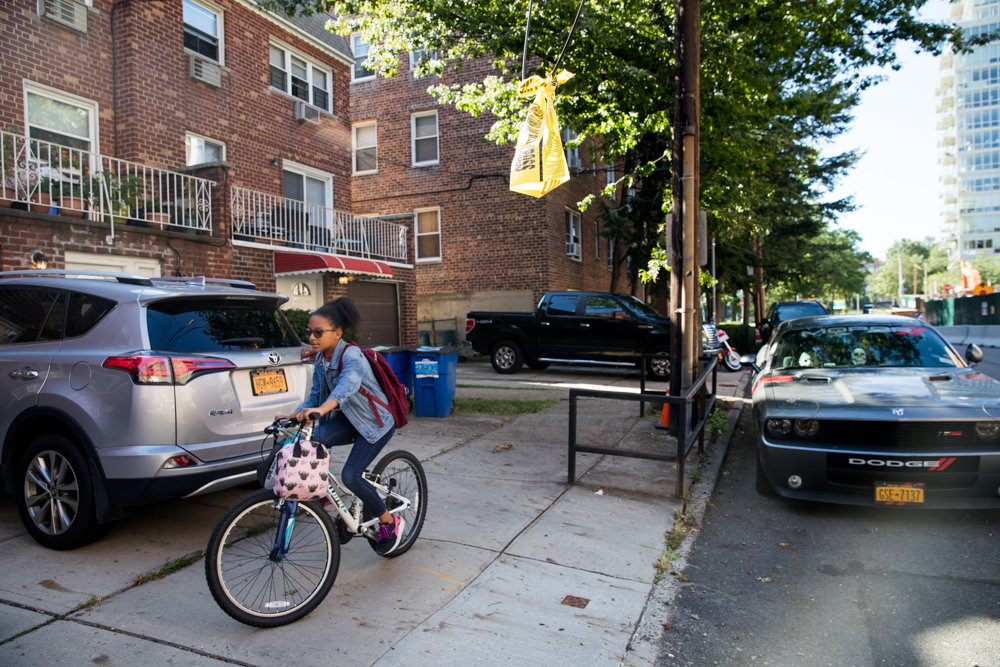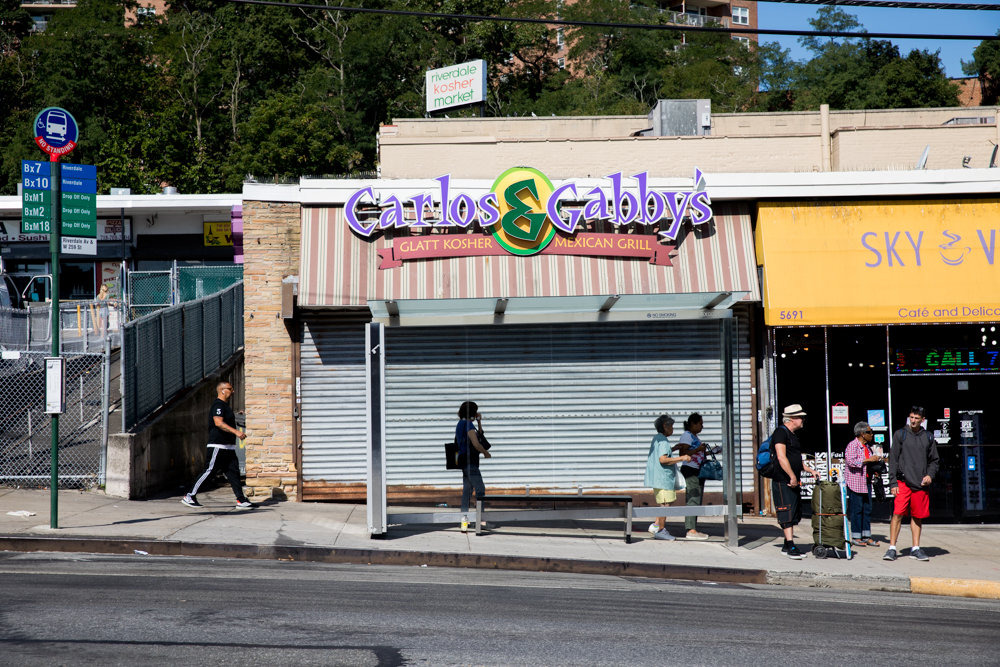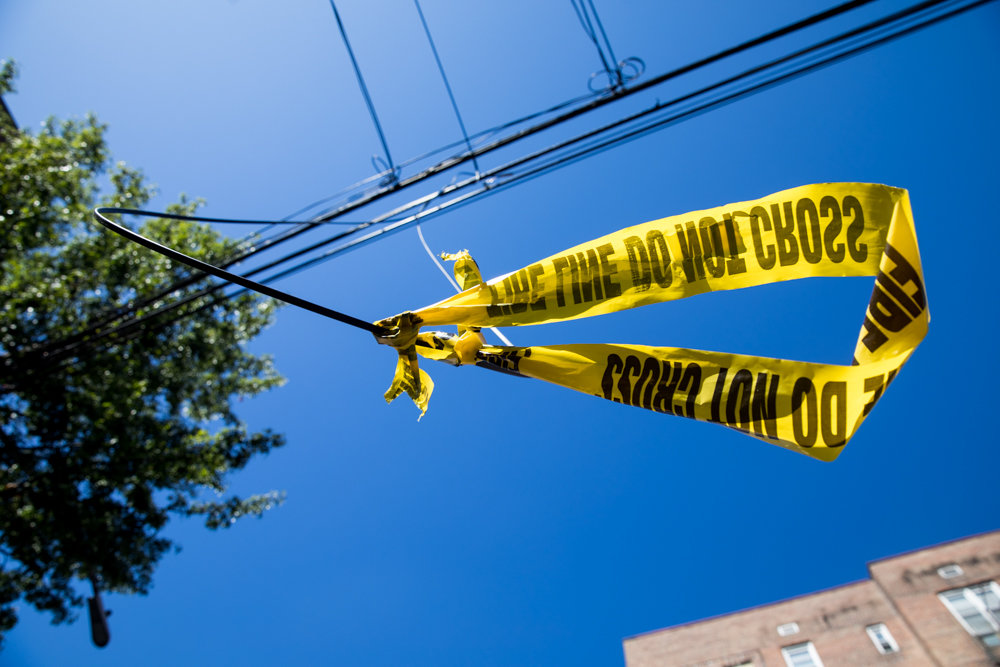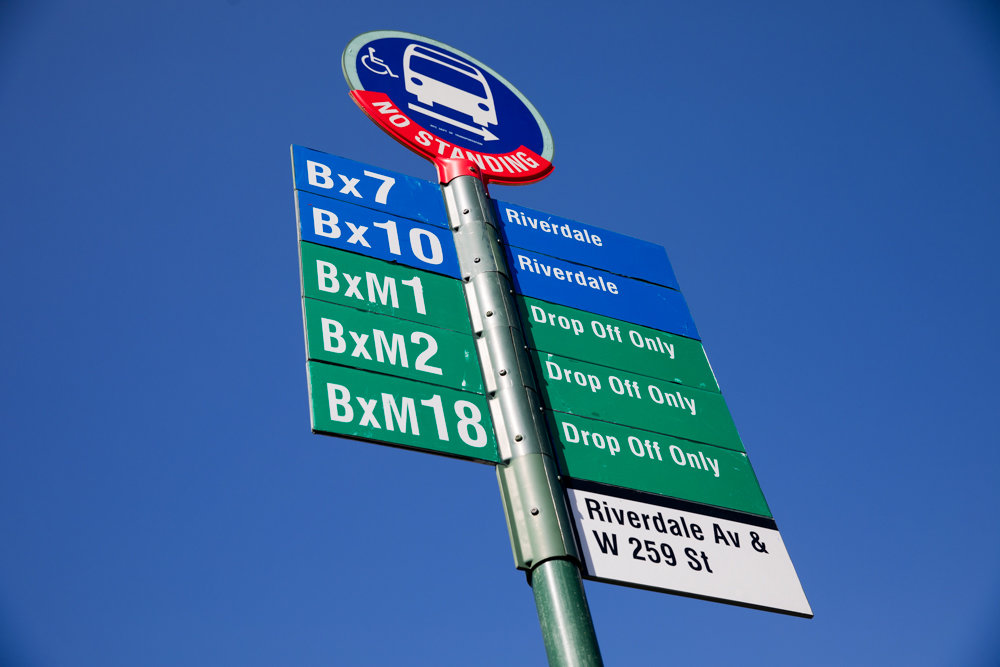311 is always here for you (and your complaints)
The streetlight on Riverdale Avenue near West 231st Street has been out for six months.
That’s how long Harold Been has waited for someone to fix it.
“I’ve called everyone I can think of,” he said. “It’s really dark out there at night, and that can be really dangerous.”
It’s not safe for pedestrians walking through the area. Cars are easily vandalized if they’re hidden in the shadows.
Been called the transportation department. He called Community Board 8. He called his elected representatives.
But first he contacted the agency that many consider a New Yorker’s first resource for information and help when something goes wrong — 311. The nice person answering the phone took his name and information about the streetlight and said she’d pass it along to the transportation department to fix.
“I don’t know what happened along the way, but I don’t think it takes half a year to replace a light,” Been said.
His experience isn’t unique, nor is he the only person to wonder what happens to 311 complaints.
“I really don’t think 311 gets the credit it deserves,” said Miles Burnett, a staffer for Councilman Andrew Cohen. The agency fields a lot of calls, and a majority of the reported problems are resolved quickly.
When the problem isn’t fixed, many people turn to their elected officials. One of the first things their support staff asks is if they called 311, Burnett said. If yes, they ask for the report number provided with every complaint.
It’s at this point some people meekly admit they never called. And that’s OK. Folks working for elected officials can file a 311 complaint for them, but it helps if people call the help line first, take down the report number, and call their representative’s office the next day, Burnett said. The office will check on the complaint status and ensure it’s been relayed to the correct agency responsible for addressing it.
If the problem persists past the expected date of completion but marked as done in the 311 system, elected officials get involved, said Frederic Klein, who works for Assemblyman Jeffrey Dinowitz.
“Depending on the nature of the complaint, oftentimes we will also go out and do a site visit, and when available, Assemblyman Dinowitz will go, too,” Klein said. “Once we are able to verify the complaint and the agency is still not addressing it, then we follow up with the agency to ask why a problem isn’t being resolved.”
If that doesn’t work, his office might escalate the issue by sending a formal letter or calling the commissioner in charge of the agency.
But both Burnett and Klein emphasized the importance of bringing the problem to 311 first. It’s the fastest and best way of getting the city’s attention to a problem.
Started back in 2003, the 311 system is by far the largest of its kind in the nation, executive director Joseph Morrisroe said. The department receives 44 million contacts by way of phone calls, its website, a mobile app and social media.
And of that enormous volume of contacts, more than 90 percent are requests for information, he said. If someone wants to know when their local pool closes, how to find an immigration attorney, learn about retirement plans or if alternate side parking is in effect, there are 311 operators ready to give their fellow New Yorkers the info they need.
“The customers will very often not know what they want or how it should be handled, and they don’t need to,” Morrisroe said. “Whatever you’re calling about, just let us know, and it’s our job to take that from you, the customer, and figure out the detail or what it is that you really need.”
Say there’s a broken streetlight. A neighbor calls 311. The operator will ask them some diagnostic questions, then fill out an online form that’s sent to the responsible agency. The operator gives the caller an estimated time it will take the agency to address the problem.
And then, the agent will then give the caller a confirmation number they can use to look up the status of the complaint. That number provides a level of accountability to the customer the agency is proud of, Morrisroe said.
“On the 311 side, there’s not a way of actively prioritizing or triaging the reports,” he said. “We treat everything equally. We treat every customer equally. We treat every request equally. Then we go through the process with the agency and the agency determines how they respond to it.”
Sometimes the problem is solved in a matter of hours or days. But sometimes, weeks tick by without any movement.
“Obviously, the 311 agent isn’t going out and doing that work, so they’re handling what we sometimes call the intake process,” Morrisroe said, “where the agency handles the fulfillment process.”
Nor does 311 go out to inspect jobs to ensure they’ve been done. If the transportation department tells 311 the job is done, it’s marked as resolved in the system.
If the problem isn’t fixed within the time 311 says it typically takes the city agency, Morrisroe said people absolutely should call back and continue calling until the responsible agency addresses it.
So if that wire is still hanging off the light pole in front of your house, the landlord still hasn’t fixed the boiler, or there’s trash all over the traffic island outside your window, call 311 until something happens. And heck, if you’re looking for the nearest library, you can call them about that too.
“Just come on in,” Morrisroe said. “We’ll figure out how best to help you.”













